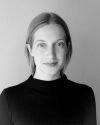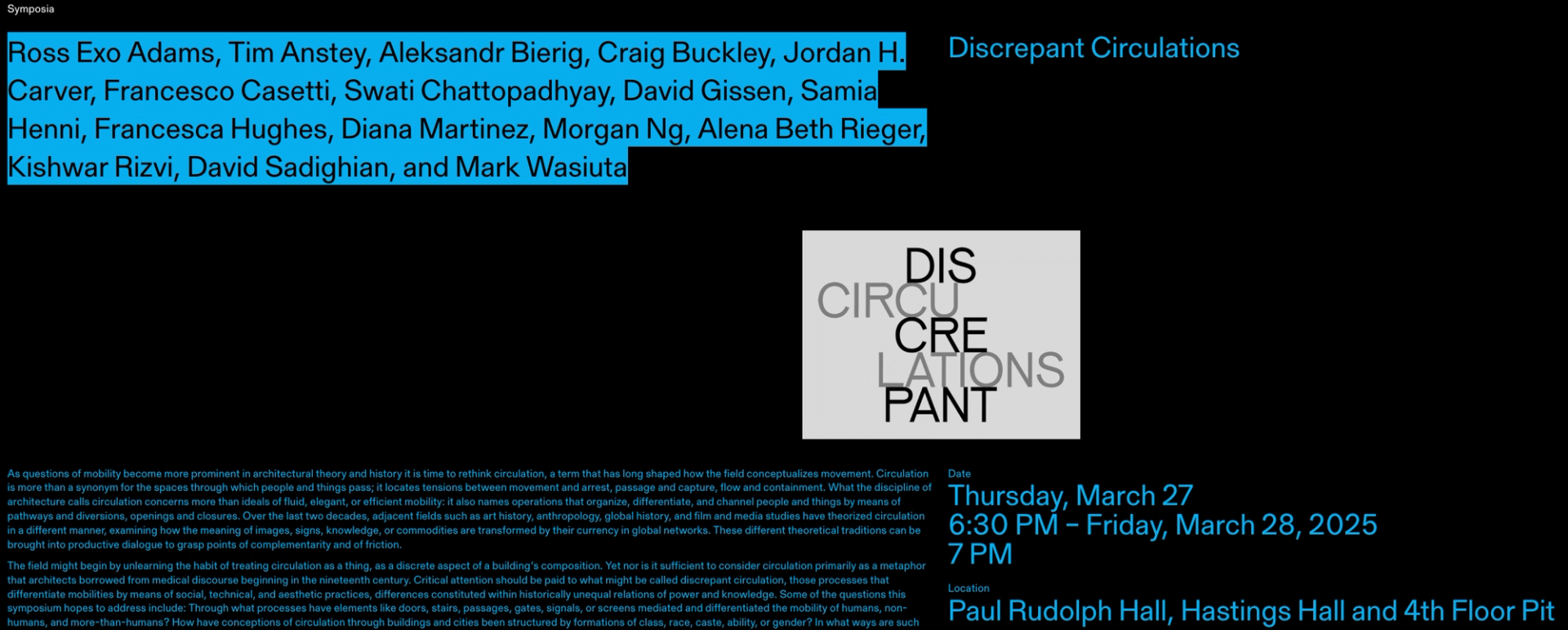
Discrepant Circulations, Yale University
As questions of mobility become more prominent in architectural theory and history it is time to rethink circulation, a term that has long shaped how the field conceptualizes movement. Circulation is more than a synonym for the spaces through which people and things pass; it locates tensions between movement and arrest, passage and capture, flow and containment. What the discipline of architecture calls circulation concerns more than ideals of fluid, elegant, or efficient mobility: it also names operations that organize, differentiate, and channel people and things by means of pathways and diversions, openings and closures. Over the last two decades, adjacent fields such as art history, anthropology, global history, and film and media studies have theorized circulation in a different manner, examining how the meaning of images, signs, knowledge, or commodities are transformed by their currency in global networks. These different theoretical traditions can be brought into productive dialogue to grasp points of complementarity and of friction.
Organised by Craig Buckley, at the Art History Department, Yale University, Discrepant Circulations looks at the differentiation of mobilities in architecture by means of social, technical, and aesthetic practice. At a critical moment for academic discourse in the US, this timely one-day symposium considered how concepts of circulation are being transformed by changing techniques for the opening and closing of boundaries; how they set people, information, and things in motion, and conversely, how they may bring them to a halt.
The Provenance group was well represented. Tim Anstey was invited to talk about his recent book Things That Move. A Hinterland in Architecture History (MIT Press, 2024)) as keynote speaker for the conference, while Alena Rieger presented the paper “Movables”.


